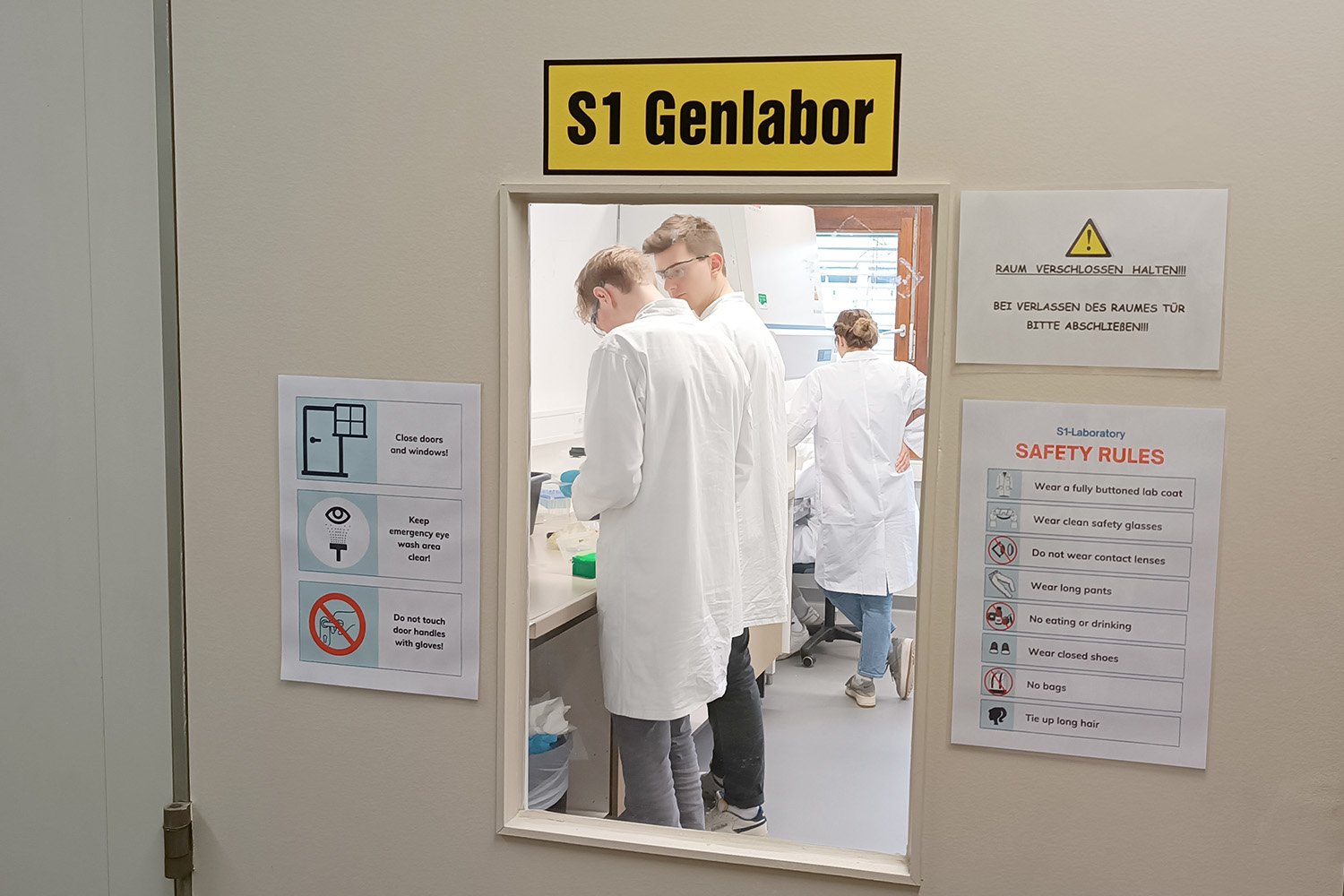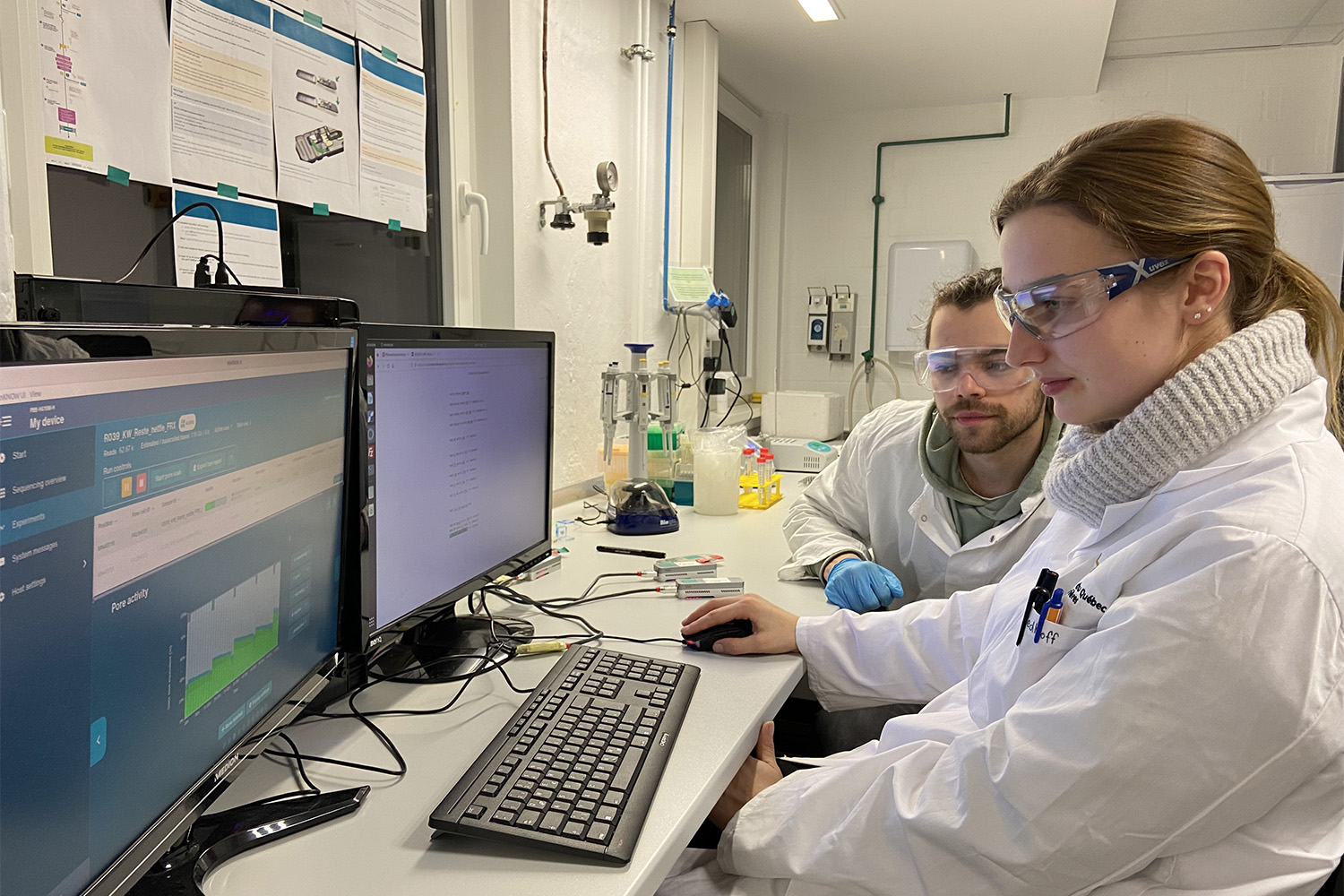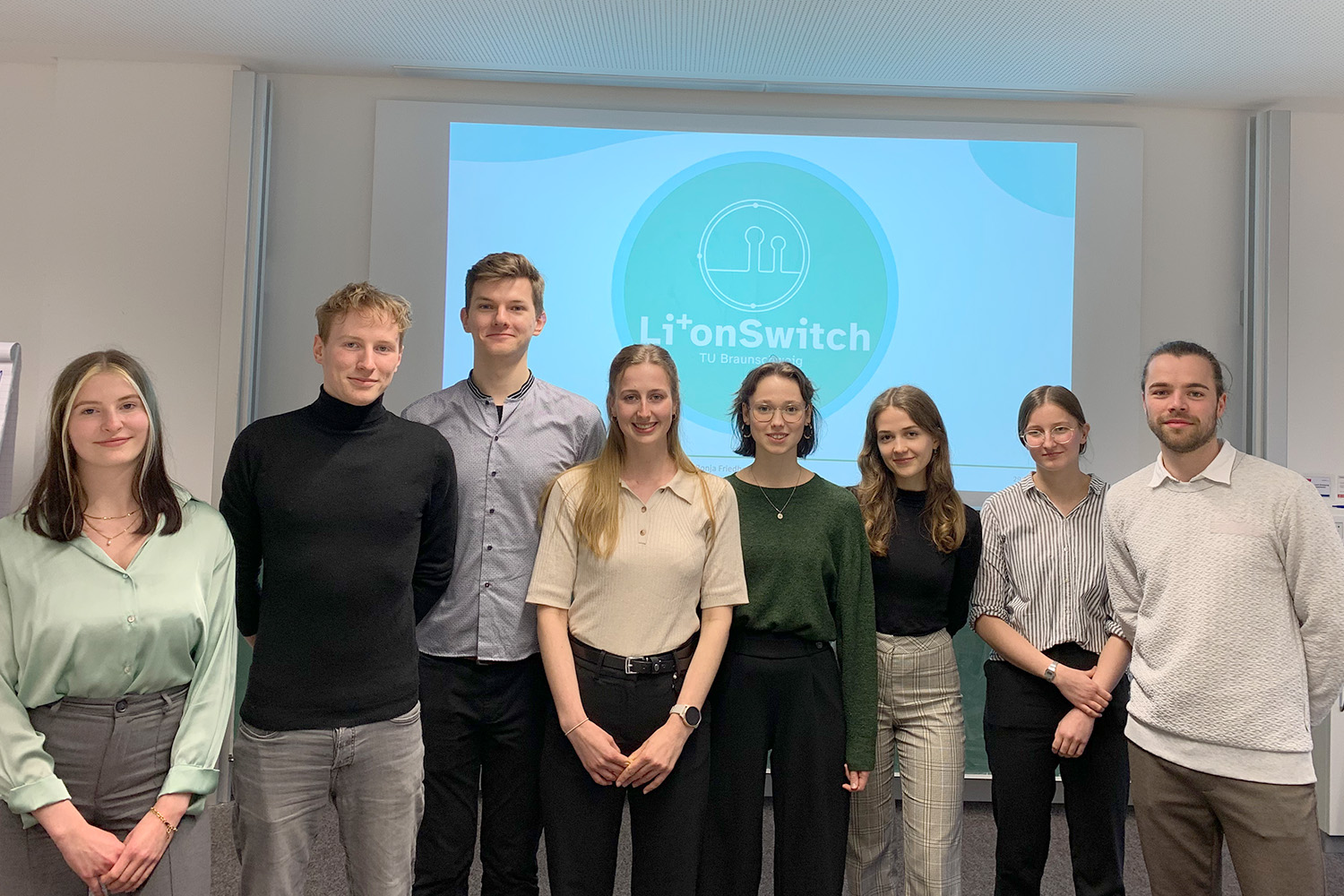Bipolar disorder: measuring lithium with synthetic biology How students want to optimise the therapy of a mental illness
How can blood lithium levels be measured easily and non-invasively? How can we make life easier for patients with bipolar disorder? These are the questions a team of biology students at TU Braunschweig would like to address in their research project.

Insight into the work of the iGEM team in their own lab. At the moment, the team is working on learning basic methods. The next step will be the first experiments to develop the test system. Photo credit: Josefine Huth
On 26 April 2023, team members Ronja Friedhoff and Susanna Pape presented the project they will implement as part of the international iGEM competition. Teachers, researchers and students of the university as well as external institutes were invited to the presentation at the Braunschweig Integrated Centre of Systems Biology (BRICS).

Team members Ronja Friedhoff and Stefan Jakschies at work on the laboratory computer. In addition to laboratory work, independent planning of experiments and evaluation of the experimental results are also part of the work on the project. Photo credit: Susanna Pape
iGEM is an international competition in synthetic biology that challenges student teams to work on their own self-financed research project. The iGEM team at TU Braunschweig consists of eight biology students who meet twice a week at the Institute of Plant Biology to discuss their ideas and plans. The team is supervised by Professor Boas Pucker, who is also making his own laboratory available to the team. Students will learn to plan their own experiments and acquire new skills in and beyond the laboratory. Thus, networking with experts and other iGEM teams as well as science communication will also be considered as criteria in the competition.
The Braunschweig team’s project this year deals with the measurement of lithium in the blood of patients with bipolar disorder. Lithium compounds are used as mood stabilisers and in many cases have a positive impact on the lives of those affected. However, lithium has a low therapeutic index, which means that weekly to monthly measurements of blood concentrations by medical professionals are necessary. “We want to develop a simple, non-invasive, at-home test system to assess lithium levels in the blood,” says Ronja Friedhoff. The team plans to use saliva instead of blood to measure lithium non-invasively.
To implement their idea, they are using lithium-sensing riboswitches, a regulatory element within mRNA, in a cell-free system.

The team at the project presentation at BRICS. The logo of the “Li+onSwitch” project can be seen in the background. The team members (from left to right): Alida Wefers, Felix Jarecki, Daniel Schulze, Ronja Friedhoff, Josefine Huth, Susanna Pape, Corinna Thoben, Stefan Jakschies. Photo credit: Prof. Dr. Pucker/TU Braunschweig
In response to lithium, the riboswitch activates the formation of a reporter gene, which then indicates whether the lithium content has reached a certain level. Susanna Pape: “Our project would be an alternative and at the same time a supplement to a visit to the doctor”. With their project called “Li+onSwitch”, the students want to reduce the effort in therapy for affected persons and medical professionals.
The iGEM team will be working on their project over the next few months. They are supported by the Ecki Wohlgehagen Foundation and the Bürgerstiftung Braunschweig, among others. The plan is to present their work at the final competition in November. This “Grand Jamboree” will take place in Paris.
